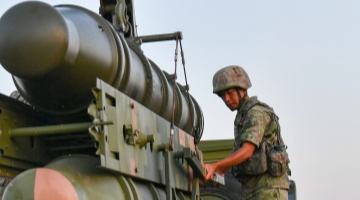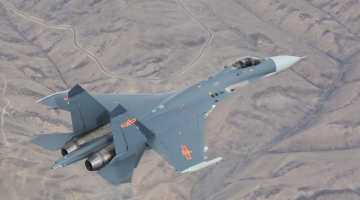By Wang Jinyan
The Libya's eastern-based House of Representatives, the parliament, approved a national reconciliation law by a majority vote on January 7. The drafting of the law began in April 2021, with a draft completed in November 2024. It took an additional two months to pass, reflecting the arduous process of national reconciliation in Libya.
Analysts believe that the passage of the national reconciliation law is a positive domestic political development following the Libyan civil war. However, it does not indicate genuine reconciliation among Libya's factions. It remains to be seen whether this war-torn North African country can successfully achieve political unification.
Led by the US and France, NATO intervened in the Libyan civil war in 2011 and overthrew the Gaddafi regime. Post-war Libya failed to achieve the expected political stability and economic prosperity but instead fell into long-term turmoil.
Since 2014, Libya has been in a state of political standoff between two rival forces. The UN-recognized Government of National Accord (GNA) and its allied armed forces control parts of western Libya, while the parliament has aligned with the Libyan National Army (LNA), controlling most of the eastern and southern regions. After years of conflict, the two sides signed a ceasefire agreement in October 2020 under UN mediation and agreed to hold presidential and parliamentary elections in December 2021. However, these elections have been repeatedly postponed due to various factors.
The main reason why the Libyan reconciliation process is so difficult is that there is a lack of internal motivation but substantial external resistance.
Analysts point out that Libya's independence is the result of international arrangements rather than the natural outcome of national development. Libyan citizens' sense of national identity is far weaker than their loyalty to tribes and regions. While a strong regime can maintain nominal unity, the collapse of such a regime will inevitably lead to division and confrontation. The public is not very concerned about national reunification. The two parallel regimes are afraid of losing their existing power and interests and often choose to maintain the status quo rather than fully promote reunification.
Libya has an important strategic location and rich oil and gas resources and therefore has attracted the attention of countries in and outside the region. Since the end of the Libyan civil war, Türkiye and Qatar have long supported the western government, while Russia, Egypt, and the UAE have backed the eastern and southern factions. External intervention has further made it more difficult to achieve national reconciliation in Libya.
Recently, new dynamics have emerged in the influence of external forces on Libya's situation. Russia has transferred some military personnel and equipment from Syria to eastern Libya and upgraded local infrastructure, signaling an intention to establish a new strategic foothold in the Mediterranean region. At the same time, Russia is also seeking support from the GNA. Türkiye is similarly "hedging its bets" by enhancing economic cooperation with the eastern and southern factions. These policy shifts by Russia and Türkiye may facilitate compromises between Libya's rival forces to some extent.
The two Libyan governments have generally coexisted peacefully since the signing of the ceasefire agreement. However, tensions resurface whenever core issues such as presidential and parliamentary elections arise. Achieving genuine national reconciliation in Libya will require sustained efforts from all parties involved.
(The author is from the Institute of West-Asian and African Studies of the Chinese Academy of Social Sciences.)













